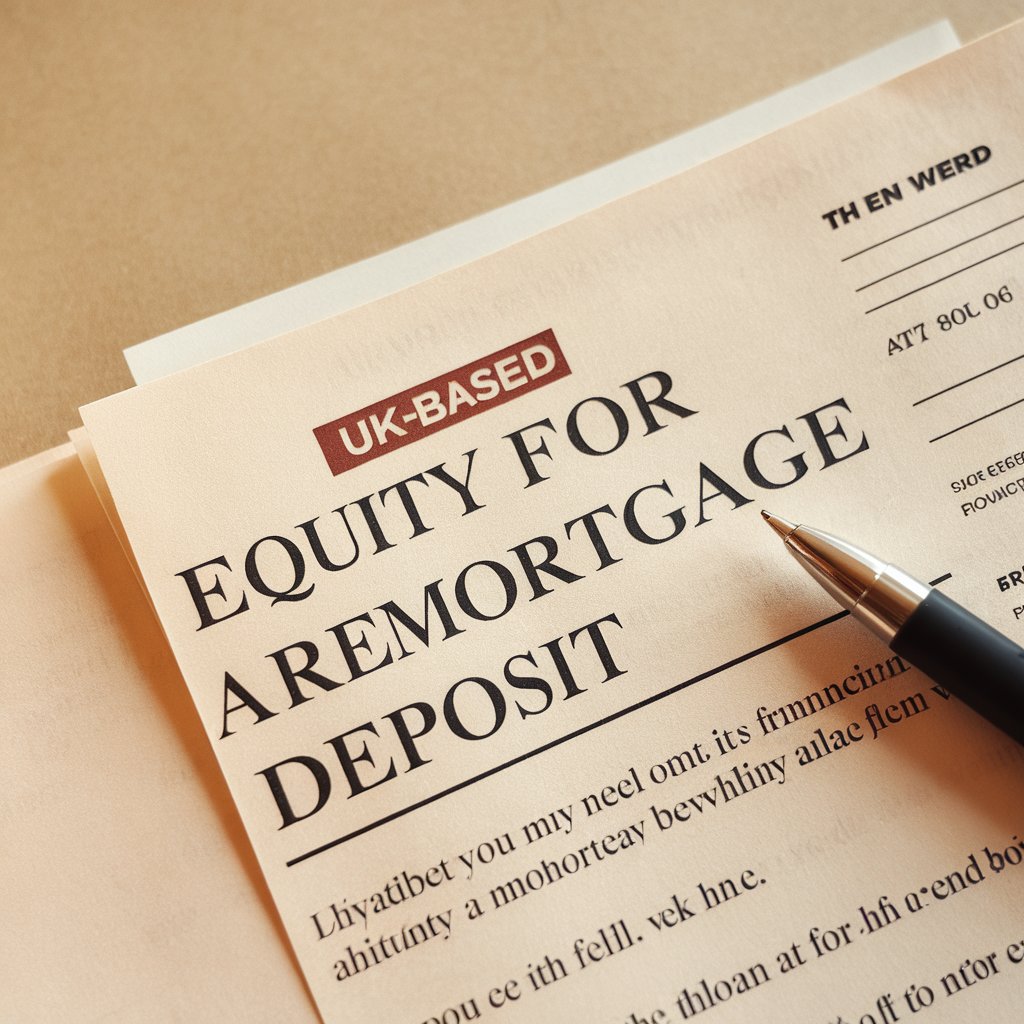A Step-by-Step Guide to Meeting Mortgage Qualification Requirements
Understanding the requirements for mortgage qualification can often feel like solving a complex puzzle, especially for those entering the property market for the first time. It’s not uncommon to find yourself confused by the numerous documents needed, unsure about the role of your credit score, and slightly overwhelmed by the size of the deposit you’ll need to save.
We understand that answering these questions is not an easy task. Our experience has shown that a strong credit score, coupled with a consistent income, are key factors for lenders when assessing your eligibility for a mortgage.
In this blog post, we’re here to clear the confusion by guiding you through each necessary step to apply for a mortgage – from identifying the required paperwork and clarifying eligibility criteria, to sharing advice on securing the best deals available.
Here’s your guide to what can appear to be a daunting procedure. Stay with us!
What Do You Need to Get a Mortgage?
To get a mortgage, you need to provide several important documents. These include your bank statements from the last three to six months, payslips (or proof of income if you’re self-employed), your latest P60, and identification documents like a valid passport or driving licence.
Lenders will also need to see your credit report to help them decide how much they can lend you. Your credit history plays a considerable role in a lender’s assessment of your mortgage eligibility. A good credit history means lenders may offer better mortgage rates and terms. You’ll also have to show how much deposit you have saved up.
The size of your deposit affects the loan-to-value (LTV) ratio, which is crucial for securing a favourable mortgage deal. In addition to these requirements, being over 18 years old and having a steady income are essential for applying for a mortgage.
Essential Documents You Need to Provide
Securing a mortgage is a significant step in buying your home. We believe that clear guidance on the critical documents needed for your mortgage application is essential. Here’s a comprehensive list to help you understand what you’ll need to provide:
- Proof of Identity: A valid passport or driving licence confirms who you are.
- Proof of Address: Recent utility bills or council tax statements prove where you live.
- Proof of Income: Payslips from the last three months showing your gross pay and deductions, and your latest P60 form from your employer, confirm your income.
- Bank Statements: Lenders will evaluate statements from the last three to six months to check your spending habits and financial management.
- Credit History: Your credit report plays a pivotal role, so lenders will scrutinise this thoroughly.
- Self-Employed Documents: If you’re self-employed, two to three years of accounts or SA302 tax calculations will be required to show your income consistency.
- Proof of Deposit: Savings statements or a letter from the person gifting you the money will verify you have the funds for a mortgage deposit.
- Details of Existing Debts: Documents related to any loans or credit cards provide insight into your other financial commitments.
We ensure that our clients are ready for their mortgage application process by fully understanding what documents they should provide. Proper preparation can enhance their chances of securing the best mortgage deals available.

The Role of Your Credit Score in Mortgage Eligibility
Your credit score plays a crucial role in determining if you’ll qualify for a mortgage and the terms you get. Lenders use this score to gauge how likely you are to repay the loan. A higher credit score can help you secure better interest rates, making your mortgage more affordable over time.
We always advise our clients to check their credit reports with the main credit reference agencies (Experian, Equifax, and TransUnion). This step gives them an idea of where they stand and what they might need to work on.
A good credit history opens doors to attractive mortgage deals.
Improving your credit score might seem challenging, but it’s possible with consistent effort. Paying bills on time, keeping your credit utilisation low, and correcting any errors on your credit report are effective strategies. These actions show lenders that you’re responsible with money, boosting your chances of getting approved for a mortgage. If you’re planning to buy a home soon, start working on improving your score now. It could mean the difference between securing the home of your dreams or missing out.
How Much Deposit Do You Need?
We often receive enquiries regarding the necessary deposit for a mortgage. Many people buying a home for the first time, as well as existing homeowners, are uncertain about the amount they need to save.
While the exact amount can vary, in most cases, a deposit of at least 5% of the property’s purchase price is needed. For example, if you’re considering a home valued at £200,000, you should aim to have at least £10,000 for the deposit.
However, a larger deposit is usually necessary to secure more favourable mortgage deals, typically around 15-20%. In other words, if you’re able to contribute more to the initial deposit, it’s more likely that lenders will offer lower interest rates.
By putting down a larger deposit, you improve your chances of loan approval and positively impact your eligibility for a mortgage. It showcases financial discipline and reduces the risk for the lender.
We suggest our clients assess their credit score early in their journey as it dramatically affects their borrowing capacity and the deals available to them. Using a mortgage calculator is a great way to understand your financial limits and what might be attainable based on varying deposit sizes. Taking this step helps in formulating a plan and setting realistic expectations.
Understanding Mortgage Eligibility Criteria
To understand mortgage eligibility criteria, you need to look at income and employment status requirements first. Lenders need to see proof of a steady income and secure employment because these factors show you can keep up with your mortgage repayments.
This often means providing recent payslips if you’re employed, or tax returns if you are self-employed. Your current address, job type, and length of time in your current role also play crucial parts.
Lenders will examine your financial history with great care. They check your credit report to gauge how well you manage debt and whether you’re likely to repay the loan. A strong credit history improves your chances of getting a mortgage approved, while a lower score might limit the amount you can borrow or increase the interest rates offered.
Moreover, your spending habits, existing debts, and the amount of deposit you have all affect your mortgage eligibility significantly. Each aspect gives lenders an idea of the risk they are taking by offering you a mortgage.
Income and Employment Status Requirements
We understand the need to prove your income and employment status when you’re applying for a mortgage. Lenders will check your credit report, but they also want evidence of stable earnings.
You’ll need to provide recent payslips if you’re employed. Those who are self-employed must show their SA302s and tax year overviews for the last two to three years. It’s all about showing lenders that you have a reliable source of income to repay the mortgage.
Your job type plays a big part, too. Permanent positions are often seen as more secure by lenders, whereas contract or freelance work may require extra proof of long-term earnings stability. We’ve found that preparing your documentation early helps make the mortgage process smoother for our clients.
How Lenders Will Look at Your Financial History
After evaluating your salary and job status, lenders will inspect your bank statements and your financial history to determine your suitability for a mortgage. They will carefully check your bank statements and scrutinise your credit file to get an understanding of your past actions related to loans, credit card bill payments, and monthly spending patterns.
This stage is vital as it helps them to forecast your future payment reliability. Lenders want confirmation that you have consistently managed debt responsibly. A flawless record can significantly increase your chances of approval.
Lenders also look for consistency in your financial behaviour over the years, such as the frequency of your new credit applications or whether any substantial debts are still outstanding. They might need you to share detailed information about long-term loans or continuous obligations like child maintenance payments. Earning a good income is not the only criterion; demonstrating responsible financial management is also necessary for mortgage eligibility.
What Affects Mortgage Eligibility?
Several factors influence mortgage eligibility, which is essential for anyone wishing to secure a home loan. A person’s credit score is highly significant; a higher score can improve your chances of approval and may lead to better interest rates.
Lenders also examine your financial history in detail, analysing your income stability, employment status, and existing debts. They aim to verify that you can manage mortgage repayments without financial difficulty.
The size of your deposit is also important. A larger deposit often equates to lower monthly repayments and could present you as less of a risk to lenders. We routinely advise clients on how increasing their savings for their deposit could have a positive effect on their mortgage choices.
Ultimately, understanding these criteria allows us to assist our clients through the application process seamlessly and effectively, striving for favourable results in securing their mortgages.
How to Apply for a Mortgage
Applying for a mortgage calls for preparation and an understanding of the requirements. We aim to simplify the mortgage application process for you, whether you’re buying for the first time or moving home.
- Check your credit report: A good credit history will qualify you for more favourable mortgage deals. You can check your report with Experian, Equifax, or TransUnion.
- Save for a deposit: A sizeable deposit is essential to reduce your overall loan amount. Aim for a minimum of 5-10% of the property’s value, but a larger deposit will give you access to better rates.
- Gather your documents: Lenders will request your identification documents, such as a driving licence, recent payslips, and proof of address.
- Get an Agreement in Principle (AIP): This shows sellers that you’re a serious buyer and gives you an idea of how much you can borrow.
- Choose the right mortgage product: Explore a variety of mortgage options to find one that aligns with your circumstances.
It’s necessary for you to present proof of your financial reliability, and a proficient mortgage adviser can effortlessly facilitate your journey. They can offer clarity about the different types of mortgages, such as fixed-rate and variable-rate alternatives, enabling you to make a well-informed selection.
“Your home may be repossessed if you do not keep up repayments on your mortgage.” This cautionary note underlines why picking the right lender is crucial. A good adviser will help you assess the amount of deposit you require and thoroughly evaluate your credit rating, effectively confirming that the offer they propose aligns with what you can afford, averting potential financial hardship.

How to Prove Mortgage Eligibility to Lenders
Proving your mortgage eligibility to lenders is a crucial step in securing the best mortgage deals. Lenders need to see evidence that you can afford the loan and will make repayments on time.
- Gather essential documents: You need to provide proof of identity, such as a passport or driving licence, and proof of address through utility bills or bank statements.
- Show proof of income: Lenders will ask for recent payslips, or your SA302 and tax year overviews if you are self-employed, and possibly evidence of bonuses or overtime.
- Disclose other income sources: If you have other income, such as benefits or rental income, you must include documentation for these as well.
- Provide bank statements: These prove your financial stability and help lenders check your spending habits and savings capacity.
- Present your credit report: You must share your credit report to let lenders assess your past borrowing behaviour.
- Offer details on existing debts: If you have outstanding loans or credit card debts, lenders will want details to evaluate how this affects your ability to repay the mortgage.
- Demonstrate savings for a deposit: You need to show how much you’ve saved for the deposit, which boosts your eligibility.
- Explain your employment status: Whether you are employed or self-employed, providing evidence of job stability and income consistency is critical.
- Share future financial plans that may impact your repayment ability: This openness helps lenders understand your long-term affordability.
- Discuss any government schemes: Mention if you are using any schemes like Help to Buy or Shared Ownership as part of your application process.
Proactively preparing these details simplifies proving your mortgage eligibility to different lenders, ensuring a smoother application process and increasing your chances of approval for the best mortgage deals available to you.
Finding the Best Mortgage Deals
We explore every avenue to assist you in finding the most suitable mortgage deals for your requirements. Using a mortgage broker can significantly enhance your chances of acquiring a beneficial offer.
Brokers have access to deals that aren’t always readily available on the open market, which means they can present you with choices that could save you money in the long run. Their expertise facilitates the understanding of complex mortgage terms and rates, guiding you through the selection procedure with clear, straightforward advice.
Enhancing your credit score is a vital component in securing approval for these deals. We suggest checking your score well in advance of applying, and taking measures to improve it if required.
This could involve settling any outstanding debts or simply ensuring all your bills are paid on time. An improved credit score amplifies your eligibility, broadening your access to more advantageous rates and terms.
With our assistance, this journey becomes less overwhelming, enabling you to approach lenders with confidence while Exploring Multiple Mortgage Options.
Using a Mortgage Broker for Better Offers
Mortgage brokers play a vital role in helping you find the best mortgage deals. They have access to offers that may not be widely advertised, enabling them to match you with lenders that suit your specific needs.
Brokers also handle the legwork of gathering documents and can offer advice on how to improve your chances of getting approved. Their expertise saves you time and could lead to better terms on your mortgage.
Working with a mortgage broker means they negotiate on your behalf, often securing lower interest rates or more favourable repayment options than you might find alone. This support is crucial for first-time buyers, homeowners looking to remortgage, and anyone seeking a competitive advantage.
Since brokers have insights into various lender criteria, they can significantly enhance your eligibility prospects for an ideal mortgage solution.
Understanding Mortgage Rates and Terms
We need to grasp the basics of mortgage rates and terms to ensure we’re making informed choices. Mortgage rates, essentially the interest you pay on your loan, can significantly impact your monthly repayments and the overall cost of buying a home. Understanding the differences between home loan vs mortgages can help you decide which option best suits your financial situation and long-term goals.
These rates fluctuate based on factors including the Bank of England base rate, economic conditions, and your financial situation. Fixed-rate mortgages offer stability with consistent payments throughout the initial deal period, while variable-rate mortgages may change depending on shifts in market interest rates.
Choosing between a fixed or variable rate affects how much you’ll pay over time.
Understanding the mortgage term is equally crucial, as it outlines how long you’ll be paying back your loan. Shorter terms usually mean higher monthly payments but less interest paid overall. On the other hand, longer terms spread out the repayments, making each instalment more manageable but increasing the total interest paid.
Lenders evaluate your income, employment status, credit score, and deposit size to determine what mortgage offers you may be eligible for. This evaluation shapes the options available to you in terms of both rate type and term length.
Tips to Improve Your Chances of Getting Approved
Improving your likelihood of mortgage approval involves demonstrating to lenders your financial responsibility and reliability. Here’s our suggested process to make you an appealing candidate.
- Check your credit report: Make sure it’s in good shape as it significantly impacts the decisions of lenders.
- Reduce your debts: Bringing down your debt-to-income ratio presents you as less of a risk to lenders.
- Save for a larger deposit: The more you can offer upfront, the more appealing the potential deal you might receive.
- Ensure you have stable income evidence: Lenders need proof of a regular wage and steady employment.
- Rectify any inaccuracies on your credit report: This step could notably lift your score if any errors are impacting it.
- Avoid taking on new debt: Applying for new credit could negatively affect your credit score and may make lenders apprehensive.
- Organise your documents in advance: Having essential paperwork, such as your ID and proof of income, ready expedites the process.
- Stay in your current job: Stability in your job is crucial; try to avoid job changes prior to your application if possible.
- Settle any outstanding defaults: Resolving old disputes or collections can enhance your financial image.
- Refrain from making other significant purchases: Avoid buying things like cars or lavish holidays before your application.
- Be realistic about what you can afford: Use online tools to evaluate how much you can sensibly borrow without overstretching yourself financially.
- Provide your rental payment history if possible: This indicates your consistent and timely payment of housing-related bills.
- Shop around for deals: But ensure it’s conducted within a brief window to minimise the impact on your credit score from multiple hard checks.
- Consider seeking mortgage advice: Experts can provide guidance on the lenders most likely to approve your application based on your specific circumstances.
- Create a budget: Formulate a thorough budget plan that accounts for your future mortgage repayments; this level of financial planning can impress lenders.
Committing to these steps can enhance how mortgage lenders view your application, boost your chances of approval, and help you secure an attractive mortgage rate for purchasing a property.
Managing Your Mortgage Repayments and Affordability
We understand that managing your mortgage repayments is crucial for ensuring long-term affordability. Calculating your monthly repayments helps you to budget and safeguards against the risk that your home may be repossessed if you miss payments.
We guide our clients through this process, making sure they have a clear understanding of how much they need to pay back each month. This allows for better financial planning and helps to avoid unforeseen difficulties.
Ensuring affordability over the life of the mortgage involves more than just calculating the initial repayments. We advise our clients on strategies to cope with potential interest rate rises, which can affect monthly costs.
Our team provides support in assessing how changes in your income or expenses might impact your ability to meet your mortgage requirements over time. This proactive approach helps to maintain financial stability and keeps your homeownership secure.

How to Calculate Your Mortgage Repayments
Calculating your mortgage repayments is crucial for anyone considering a mortgage. It helps you to understand what you’ll need to pay back each month. Here’s how you can do it:
- Identify the total loan amount you need to borrow. This figure comes from the price of the home minus your deposit.
- Determine the interest rate offered by your lender. Rates vary depending on the mortgage type and your financial situation.
- Choose your mortgage term. Standard terms are 25 or 30 years, but this can be shorter or longer.
- Use a mortgage calculator. Many lenders and financial advice websites offer free tools to help you find out your monthly repayments.
- Enter the loan amount, interest rate, and term into the calculator.
- Examine the results, which will show your monthly repayment amount.
This monthly figure includes part of the loan (the capital) and the interest. As you pay down the loan, a larger portion of your payments will go towards reducing the capital rather than just paying off the interest.
Always bear in mind that factors like changes in interest rates will have a significant impact on these calculations. It’s imperative to guarantee that any potential shift in circumstances won’t put you at risk of failing to make repayments; if not, your home may be repossessed.
Examine various scenarios where interest rates might rise to make sure you are ready for any future changes in your repayment amounts.
Consider additional fees that may apply, like arrangement fees or early repayment charges, as they can influence the overall cost.
Contemplate making overpayments if permitted by your lender; contributing more each month can reduce the total amount of interest you pay over the term of the mortgage.
Being able to calculate your mortgage repayments gives you control over one of the most significant financial decisions you will make and ensures the long-term affordability of your home purchase.
Ensuring Long-Term Mortgage Affordability
We always advise our clients to think ahead about their mortgage repayments. It’s crucial to ensure long-term affordability, not just at the start. You’ll need to be able to keep up with your payments even if interest rates rise or your financial situation changes.
One tip is to set aside savings that can cover future rate increases or unexpected expenses.
Checking whether you’re eligible for a fee-free mortgage deal can also make a big difference. These offers might save you money, making it easier to manage your payments over time. We help clients to understand their options and how different deals affect their long-term affordability.
What Happens if Your Home is Repossessed?
Maintaining long-term mortgage affordability is crucial, but sometimes, financial hurdles can lead to the risk of repossession. If you fail to keep up with your mortgage repayments, your lender may start the repossession process as a last resort.
This means they could take ownership of your home and sell it to recover the amount you owe.
During this process, lenders must follow strict rules. They need to show that they have tried all other options before considering repossession. You’ll receive written notices and might have opportunities to discuss payment arrangements or changes in terms to avoid losing your home.
If repossession proceeds, selling the property doesn’t always cover the total debt; you may still owe money to the lender. It’s essential to seek advice early if you are struggling with your payments, as various solutions could help you to manage your mortgage challenges without reaching this stage.
Conclusion
We understand that the process of becoming a homeowner can be daunting, particularly for those who are doing it for the first time. Our mission is to be with you at every stage, ensuring you’re well-prepared and comfortable with your choices.
We will assist you in gathering the necessary paperwork, improving your creditworthiness, and selecting the most beneficial mortgage agreement. As a team, we will work towards making certain you fulfil all the qualifying conditions and find a repayment arrangement that aligns with your financial plan.
Our guidance extends beyond merely securing a mortgage offer; we accompany our clients for the long term. Managing repayments and ensuring continued affordability are vital for your financial stability.
Our support makes the journey to homeownership more transparent and less intimidating. Depend on us to be there from the start to the finish as you realise your dream of owning a home.




